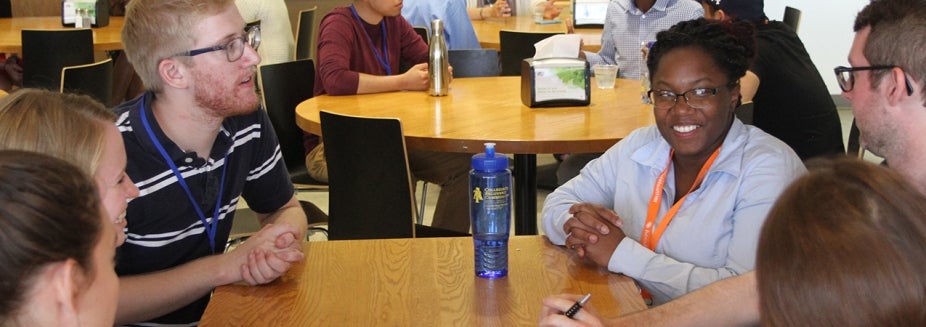ULW FAQs

APPLICATIONS & NOMINATIONS ARE CLOSED
Student Application Form (student)
HOW DOES A STUDENT APPLY TO ATTEND THE ULW?
- Discuss your interest in attending the ULW with a faculty member in your department and ask them if they would nominate you. Your department will decide on which students to nominate to attend the ULW.
- Once you have confirmation that your department has nominated you, complete the online Student Application Form by March 23, 2025, including (1) the short essay and (2) transcripts that are to be uploaded.
- Check that the faculty member has completed the Nomination Form by March 23, 2025.
- Note: To be considered for the ULW, we must receive both an application from the student and a nomination from a faculty member. Workshop participants are selected by NSF NCAR from a competitive pool of applicants
WHO IS ELIGIBLE TO PARTICIPATE?
- To qualify, applicants should be an undergraduate in college at the time of applying and generally have at least one semester left this coming fall before graduating.
- Applicants must be enrolled full-time in a bachelor's program in the atmospheric or Earth system sciences in a U.S. institution.
- Students should have a reasonably good GPA.
WHAT ARE THE DATES AND DEADLINES FOR THE ULW?
- The ULW is scheduled from June 8-13, 2025 (departure from Boulder on June 14).
- The deadline for applying is March 23, 2025.
- The nomination deadline is March 23, 2025.
- Students will be notified of their application status no later than April 11, 2025.
AS A FACULTY MEMBER, HOW DO I NOMINATE A STUDENT?
- Decide on a student you would like to nominate. Please discuss with your department which student(s) to nominate.
- Once a student or students have been selected for nomination, one faculty member must complete the online Nomination Form for each student.
- In general, we don't accept more than two students from one university of college.
- Note: In order for the nomination to be complete, the student must complete the online Student Application Form.
- The deadline for nominations is March 23, 2025.
AS A FACULTY MEMBER, WHO SHOULD I NOMINATE?
- Please select an undergraduate in college at the time of applying that has at least one semester left this coming fall before graduating.
- Ideally the student is studying or has interest in either in the atmospheric sciences or Earth system sciences.
- The student should generally have at least one semester remaining in the fall before graduating, and is expected to share their insights about NSF NCAR and opportunities in the Earth system sciences with students upon their return to school.
- Consider the student's potential to gain from the experience and potential leadership qualities, including those of quiet or introverted leaders who have talent.
WHAT IS THE BENEFIT TO MY DEPARTMENT/SCHOOL?
- Student participants will return to the school with a greater awareness of possible career paths in the Earth system sciences, a better understanding of the professional skills needed, and insights about graduate school. We will encourage them to share these insights with and support their peers at school.
- Participants develop a national network of peers and scientists who they can connect with their peers back at school.
HOW DOES THE STUDENT BENEFIT?
- Students will get to develop leadership skills, explore careers in the Earth system sciences, gain professional skills, and come away with a peer network that will provide support for years.
WHAT DOES IT COST THE STUDENT?
- There is no cost to the student to participate in this one-week workshop. Travel to Boulder, CO, lodging, breakfast and dinner at CU dining hall, per diem for lunches and local transportation between the CU dorms and NSF NCAR are covered. Please note that per diem will be paid at the end of the program.
WHAT IS MY DEPARTMENT’S FINANCIAL RESPONSIBILITY?
- There is no cost to your department, NSF NCAR will provide travel, accommodation, per diem for meals, and local transportation between the CU dorms and NSF NCAR during workshop in Boulder, Colorado.
WHERE DO THE STUDENTS STAY WHILE IN BOULDER?
- Students will stay in a single-occupancy University of Colorado dorm. Meals will be provided.
WHAT ACCOMMODATIONS ARE MADE FOR STUDENTS WITH DISABILITIES OR OTHER REQUIREMENTS?
- We will provide ADA accommodations to the best of our ability. The dorms at University of Colorado are ADA compliant.
I HAVE A QUESTION THAT WASN’T ADDRESSED HERE
- Contact us with other questions at ulw@ucar.edu